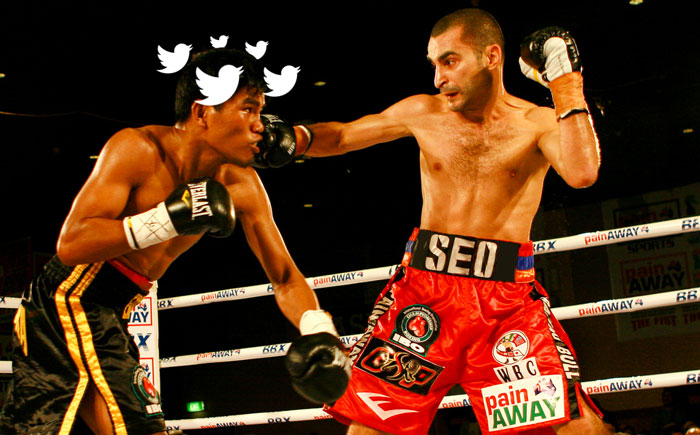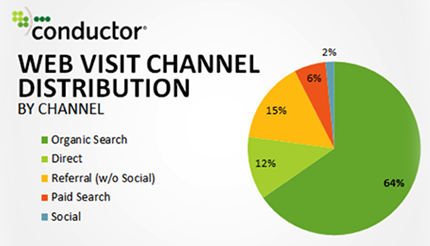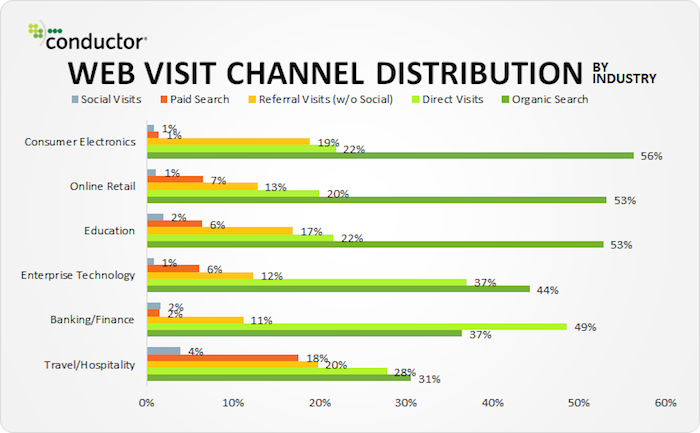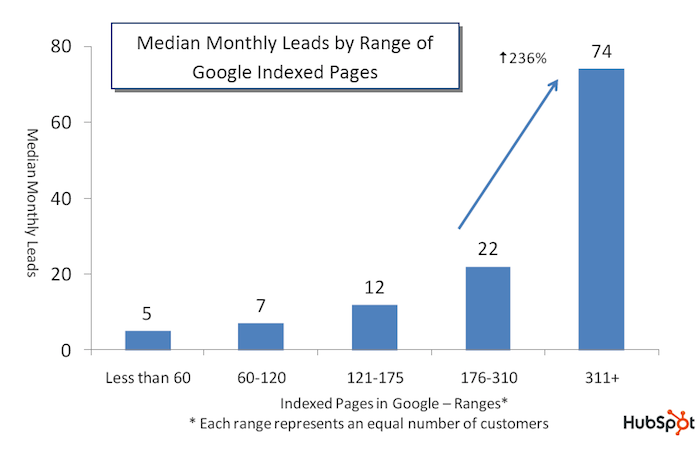
Before diving into individual marketing tactics like a college freshman into free pizza, it’s important to understand just how important search engine optimization is in terms of the overall mix.
Search, for many companies, is by far the largest channel that drives traffic. With 6 billion searches a day on Google, it’s no surprise.
Google stats

What is the number one digital marketing strategy of all time?
For some companies with large lists, email marketing leads the pack by far, but its success is not as common as that of SEO.
While the pie charts below may not be perfectly accurate, they are made by one of the leading Internet marketing software companies in the world, and were partially based on analyzing 310 million visits.
They clearly show, even if the numbers aren’t perfect, that search on average, drives much more traffic than social media. Both are fantastic, but a proper digital marketing strategy cannot take the efforts needed to do well in organic search lightly.
Web visits by channel

Web visits by channel and by industry

Last year we had an SEO client, who got just under 100,000 total visits to their website but only 2,000 of them were social media visits. They have a young employee at their office doing social media, and they post some pretty decent content and even ask questions somewhat frequently to engage visitors.
Certainly, a good social media marketing company can do much better than that, but it is interesting how that example perfectly backs up the statistics above. Even when a company thinks they are doing a half decent job at social media, it’ doesn’t typically have as much of an impact on website visits as search does. Not that the entire point of social media is to drive people back to your website, but if website traffic is what you’re after, then these statistics are important considerations.
Below is organic search to social media traffic percentages from some of our clients
Note: Data is for a one year period and some of the organic search is for branded keywords when people search on the company by name.
Community Bank
- Direct: 54.79%
- Organic search: 40.42%
- Referral: 4.65%
- Paid search: 0.07%
- Social: 0.05%
- Display: 0.01%
- Email: 0.00%
Restaurant
- Organic search: 56.28%
- Direct: 32.58%
- Referral: 6.12%
- Paid search: 3.71%
- Social: 1.26%
- Email: 0.04%
E-commerce site
- Other: 32.26%
- Direct: 25.97%
- Paid search: 19.44%
- Organic search: 17.54%
- Display: 0.29%
- Referral: 4.40%
- Social: 0.08%
Law firm with over 100 attorneys
- Organic search: 59.78%
- Direct: 27.85%
- Referral: 10.14%
- Social: 1.43%
- Other: 0.43%
- Email: 0.37%
The law firm example might be the most interesting one because we just started doing search engine optimization for them and they never did much with it before. In addition, their blogs are on other domains and are not adding directly to the overall percentage.
You would expect that law firms get less social media attention, but in this case it’s a higher percentage than any of the others. Clearly we have some work to do on tying search and social media together in a stronger way across our client base, even if we are not being paid as the social media marketing agency.
It’s really not one or the other
Search engine optimization really shouldn’t be done in isolation anymore, or without the help of social media for sharing your content in order to get more visits and links. With that said, on average, between organic searches and paid clicks from search engines, not only does more traffic tend to come from search engines, but it usually converts better as well.
Social media certainly can convert well with a very intentional strategy, but usually it is for getting people to visit/view your content or download an e-book rather than giving them a hard sell. Search engines drive traffic that is often related to people’s researching and purchasing needs, that’s why it tends to convert better.
Social media vs SEO smack down
Media bistro recently created a nice info graphic called the “social media versus SEO smack down”, and they broke down some of the differentiating factors below.
- Speed –Social media posts are more instant than SEO.
- Limits –Traffic from search is limited to specific search volume, social media traffic is potentially unlimited.
- Topics –Search is more research and needs based, while social is more emotional.
- Formats –Longer text of 1500 words or more works well in Google, while images drive a lot of social media marketing.
- Audience Intent –Search visitors are more likely to buy, whereas social visitors are far more likely to engage and share, which influences others.
- Effort –Traffic from search engines can last a very long time, whereas social media is hot initially and then goes cold.
- Metrics –Social media provides a ton of track-able metrics, but search traffic tends to produce clearer ROI.
Interdependency
Without a good outreach and social sharing campaign you are very unlikely to get regular back links. Therefore, SEO companies that don’t partake in finding the communities where their content will be valued, allowing them to connect with real people and influencers, will fall short.
Brad Miller of searchenginewatch.com asked Rand Fishkin of Moz, “Will social signals ever become more important than links?” Here is what Rand had to say:
Probably no, but I think that social, branding, press and PR, and things like content marketing will all replace a lot of the purely link-fueled and link-focused outreach and link acquisition,” Fishkin said. “I see the world of SEO continuing to be focused and even reliant on links in a lot of ways, but not reliant on the tactics we’ve used to acquire them in the past. So I think that link earning is going to replace link building.”
So it is more about earning links which are critical to SEO, through content, PR, branding and social sharing.
“EAT” at Google and the rise in complexity of SEO
Google has an acronym (EAT) that their employees use to judge websites. It stands for expertise, authoritativeness, and trustworthiness. A website cannot get a high rating, according to Google, ifit is not clear that it is authoritative, has expert authors, and trusted reviews.
Some of the largest and most influential websites in the world are blogs, or have blogs and regularly update their content. This content and/or blogging approach has been proven in the B2B marketing community as well. In fact, HubSpot has a wealth of case studies in this area, perhaps more than in e-commerce websites.
The HubSpot chart below is based on data from approximately 10,000 customers and shows that larger sites with 311 or more pages get a 236% increase in leads.

Whether you are B2B or a B2C company, the old days of SEO being a behind-the-scenes and non-social activity are gone.
Blurring the lines between search and social media marketing
If having a blog and a lot of content is critical for SEO, and blogging is technically a social media marketing tactic, then which are you doing when you are blogging?
Modern SEO requires you to be a thought leader, connect your content with influential authors in your space, and get good reviews. This ties in deeply to social media marketing.
Facebook has changed the game by making it pay to play
In the Wild Wild West days of social media, the “gold” of lots of “organic reach” visitors could be had by anyone with the personality and will to engage and share content. These days, your reach on social media is a small fraction of what it used to be. As Facebook expert Amy Porterfield says:
Facebook’s organic reach has drastically declined. That’s a fact. When reach declines, it often feels impossible to get your fans to engage with you on your Facebook Page…. If you want to see big results from Facebook, you must invest in ads…. If you combine the increase in organic reach WITH your new understanding of Facebook ads, you will finally start to see the kind of results on Facebook that you’ve been searching for all along.”
This is powerful stuff coming from the queen of Facebook marketing, and once again shows how tactics are tied directly together. If you don’t pay for Facebook ads, you will likely have limited results. If you don’t do social media, your SEO will suffer from a lack of awareness of your content.
Leveraging the relationship between SEO and social media marketing
I may be personally biased because I fell in love with SEO back in 1995, but I do give more importance to SEO over social media. With that said, I have failed plenty of times to get significant traffic on certain projects, and the reason is usually because the content that we are trying to promote with SEO is not resonating with people socially.
The smartest digital marketing experts know how to make these two tactics work together. This type of strategic thinking isn’t necessarily on the mind of the niece or nephew that you or your boss might have hired to run your social media. Or is it?
